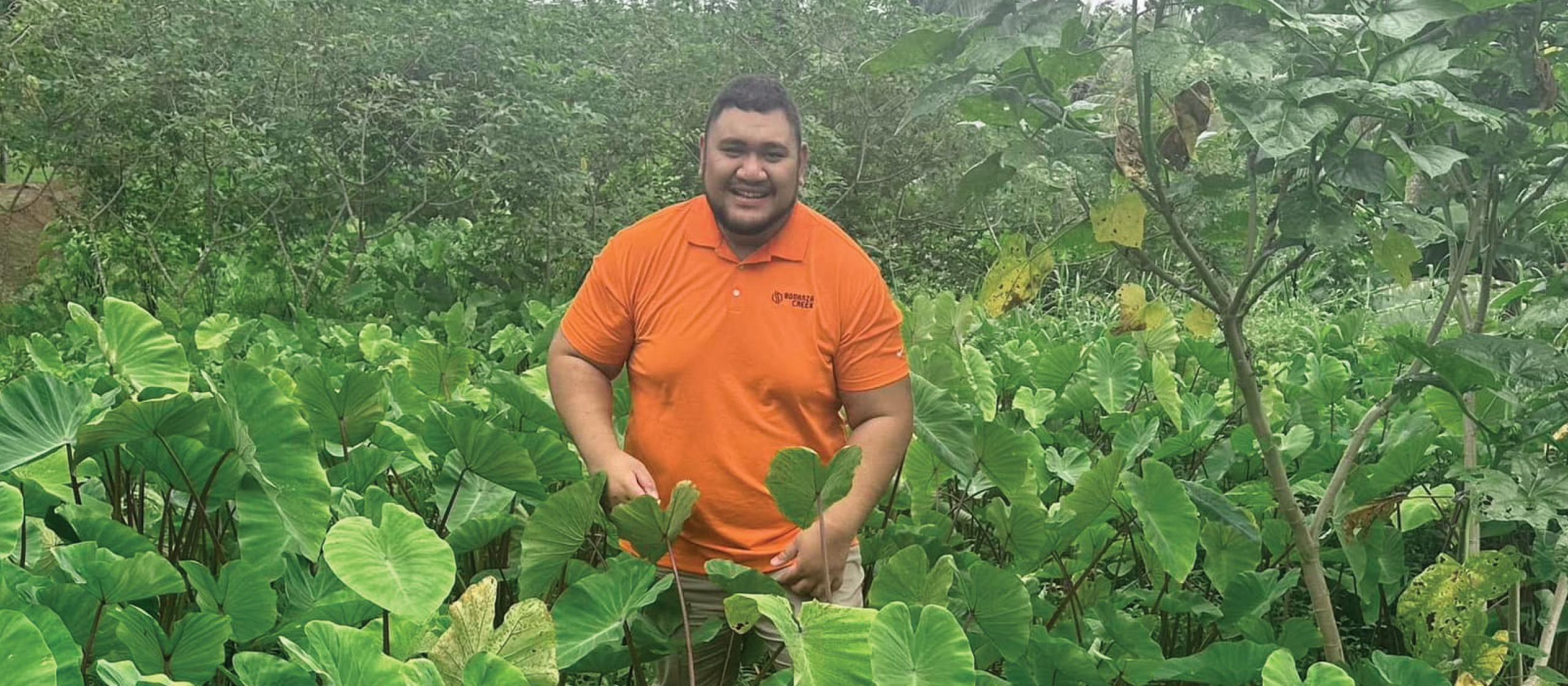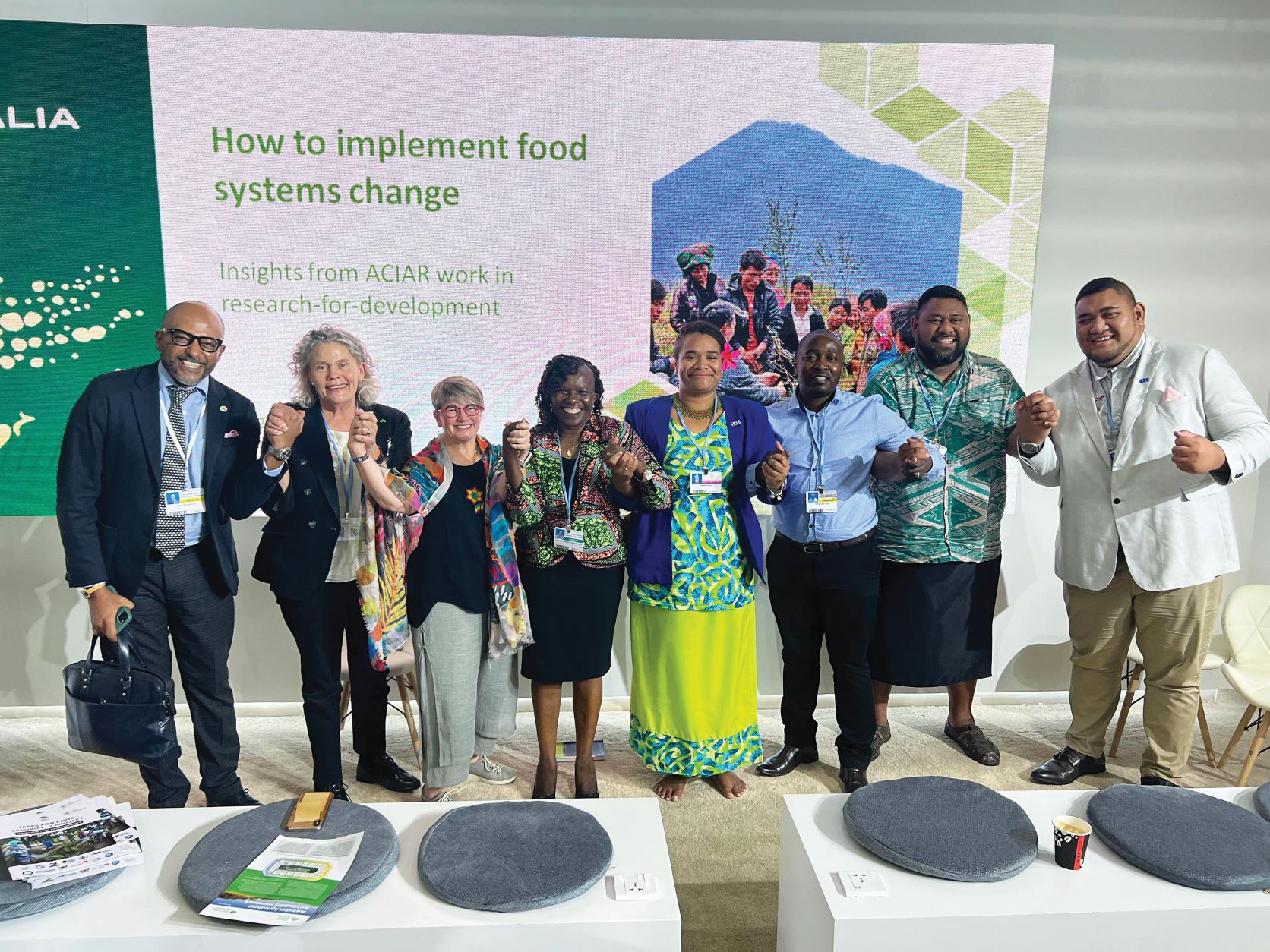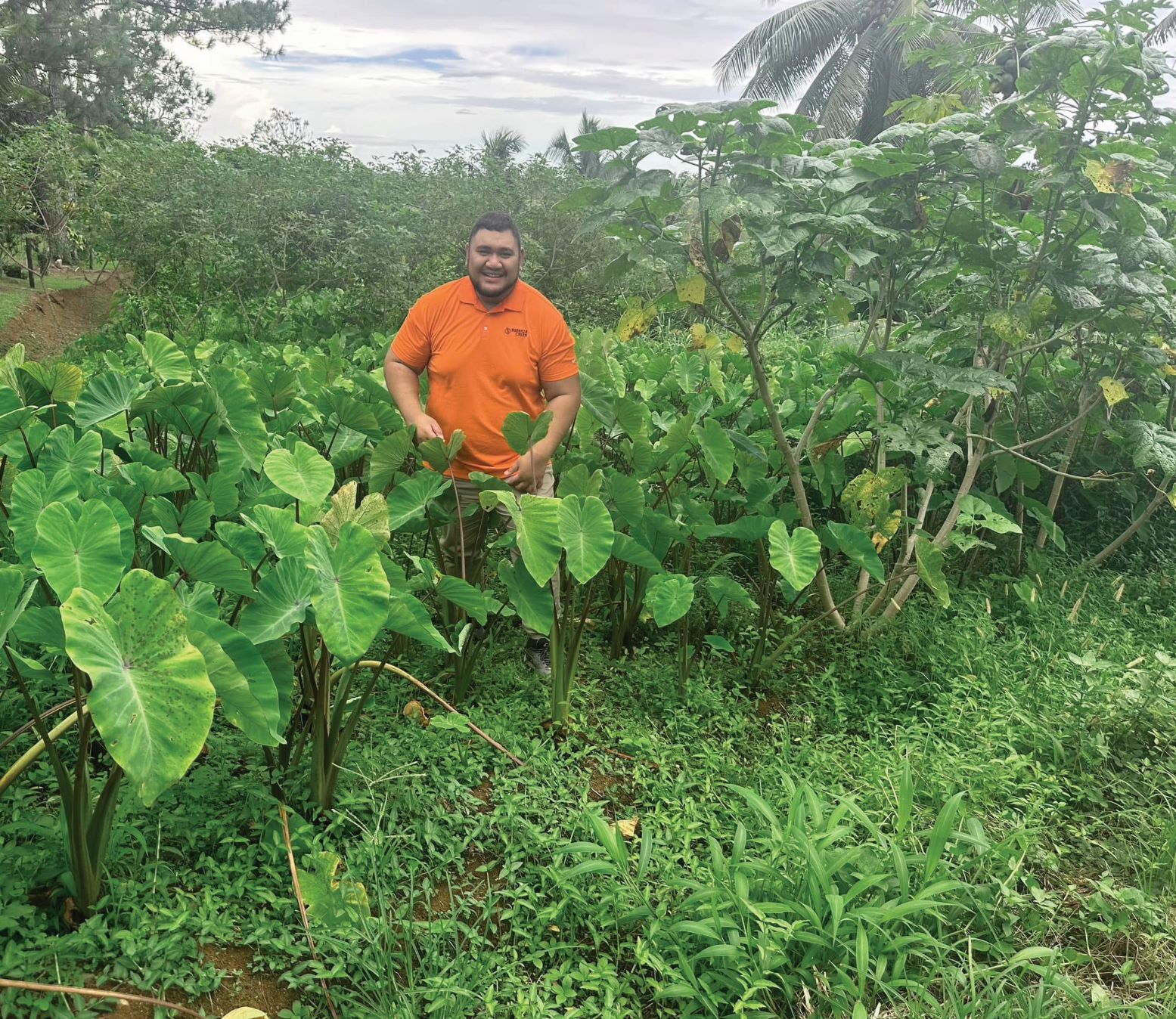There was a moment of insight at COP27 – The United Nations Climate Change Conference held in Egypt in 2022 – where everything fell into place for Mr Christian-Yves Amato-Ali.
The Rotuman Master of Climate Change student is motivated by the potential of his research to have impact in his community, but he has often despaired that as an individual, he could do little to address the grand challenge of global food security.
However, at COP27, as a representative of the University of the South Pacific and an official observer in negotiations for the region, he experienced a profound moment of connection and understanding.
Through meeting like-minded delegates from all over the world, he saw that each one was working to make a difference in their own way. When put together, those individual efforts were combining to create meaningful, large-scale change.
He left COP27 buoyed up by more than the historic official agreement for a ‘loss and damage’ fund for countries most vulnerable to climate change, including those in the Pacific region.
‘I saw that by making impacts in our small pockets of the world we are all contributing to the bigger picture,’ said Mr Amato-Ali, who also provided a youthful perspective on strengthening food systems as part of an ACIAR panel at the conference.





